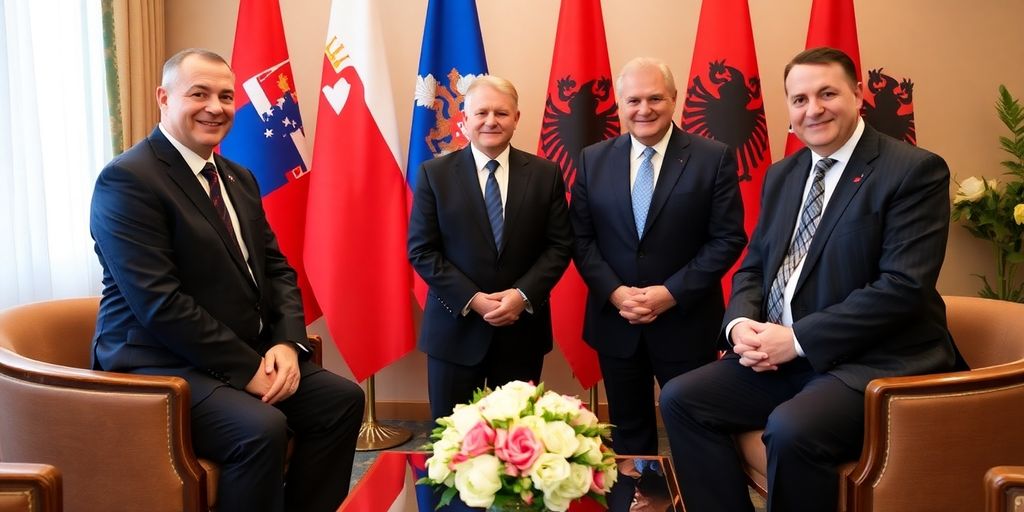During his official visit to Albania, Slovak President Peter Pellegrini reiterated that Slovakia will not change its position on recognizing Kosovo. He emphasized that this decision is not a reflection of the relationship with the Albanian people but is based on Slovakia’s national policy.
Key Takeaways
- Slovak President Peter Pellegrini visited Albania to discuss bilateral relations.
- He confirmed Slovakia’s stance on Kosovo, stating it will not recognize the territory’s independence.
- Pellegrini clarified that the decision is not against the Albanian nation but is a matter of national policy.
Background on Kosovo’s Independence
Kosovo declared independence from Serbia in 2008, a move that has been recognized by over 100 countries, including the United States and most EU member states. However, several countries, including Slovakia, Spain, and Greece, have not recognized Kosovo’s sovereignty, citing concerns over territorial integrity and the precedent it may set for other separatist movements.
Slovakia’s Position on Kosovo
- Historical Context: Slovakia’s reluctance to recognize Kosovo stems from its own concerns regarding separatism, particularly in relation to its ethnic Hungarian minority.
- Political Implications: The Slovak government has maintained that recognizing Kosovo could undermine its own territorial integrity and set a challenging precedent for other regions with similar aspirations.
- Diplomatic Relations: Despite its stance on Kosovo, Slovakia maintains diplomatic relations with Albania, focusing on economic cooperation and regional stability.
The Importance of the Visit
Pellegrini’s visit to Albania is significant for several reasons:
- Strengthening Bilateral Ties: The visit aims to enhance cooperation between Slovakia and Albania in various sectors, including trade, security, and cultural exchange.
- Regional Stability: By engaging with Albania, Slovakia seeks to promote stability in the Balkans, a region historically marked by ethnic tensions and conflicts.
- European Integration: Both countries are interested in the European Union’s enlargement process, and discussions during the visit may touch upon Albania’s aspirations for EU membership.
Reactions to Pellegrini’s Statement
The reaffirmation of Slovakia’s position on Kosovo has drawn mixed reactions:
- Support from Nationalists: Some nationalist groups in Slovakia support the decision, viewing it as a defense of national sovereignty.
- Criticism from Pro-European Advocates: Conversely, pro-European factions argue that recognizing Kosovo could enhance Slovakia’s standing within the EU and foster better relations with other member states.
Conclusion
President Pellegrini’s visit to Albania underscores the complexities of international relations in the Balkans. While Slovakia remains firm in its stance on Kosovo, the ongoing dialogue between the two nations highlights the importance of cooperation and mutual respect in addressing regional challenges. As the situation in the Balkans continues to evolve, Slovakia’s position may be tested, but for now, it stands resolute in its policy regarding Kosovo.






